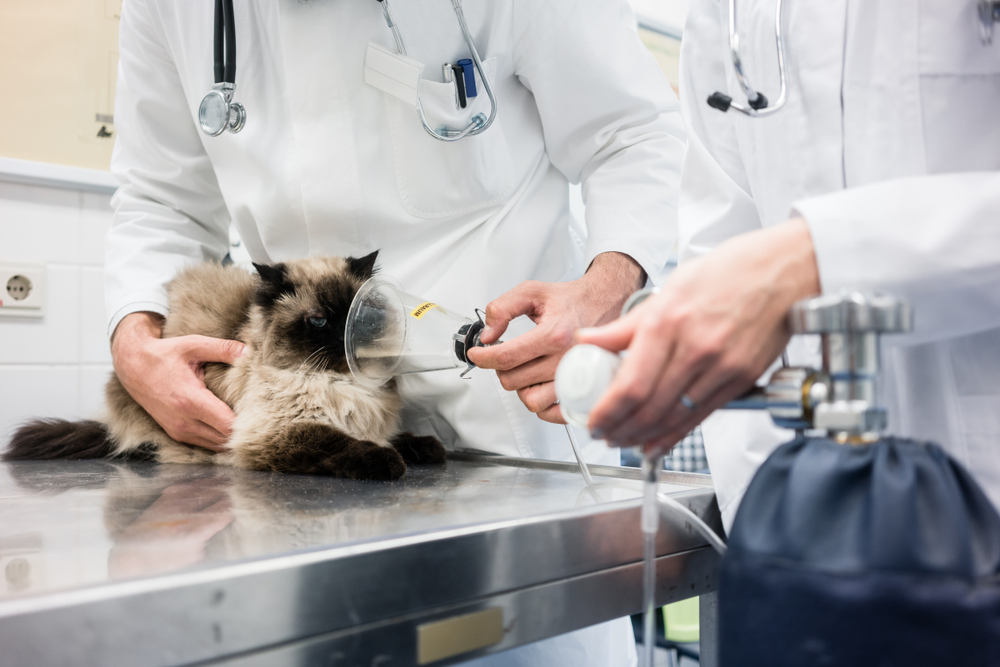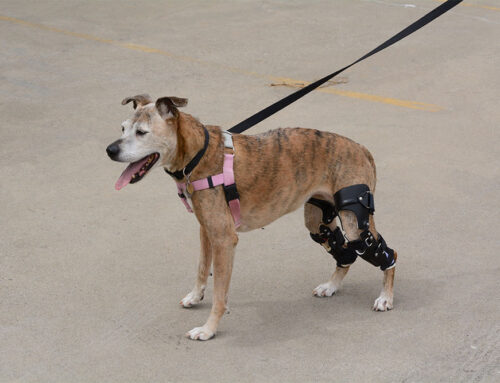Our four-legged companions are family, and over time, pet parents are able to recognize the most subtle changes in how their pets feel or behave. From missing a meal to turning down their favorite treat or ignoring their favorite toy, recognizing when our pets are sick or not feeling well is easy. However, some illnesses, such as heart disease, may not be as obvious, and receiving this diagnosis from your veterinarian can be shocking and worrisome. Our Livingston Veterinary Hospital team explains what it means when your pet is diagnosed with dilated cardiomyopathy (DCM).
What is dilated cardiomyopathy in pets?
Your pet’s heart looks and works the same way as a human heart. The heart consists of four chambers whose function is to pump blood throughout the body. Blood flows from the body to the upper heart chamber (i.e., right atrium), to the lower heart chamber (i.e., right ventricle), through the pulmonary artery, and to the lungs to pick up oxygen. Blood then continues its journey to the left atrium through the left ventricle and out the aorta, bringing the newly oxygenated blood to vital organs. The heart functions much like a well-oiled machine, keeping the blood flowing. When that machine is disrupted and the flow pattern interrupted, a veterinary exam may reveal that your pet has a heart murmur. Heart disease and murmurs in pets have multiple causes, with DCM one of the more common heart conditions in our canine friends and occasionally in cats. DCM occurs when the lower heart muscles (i.e., ventricles) become weak and cannot contract normally, preventing blood from being pumped properly to the rest of the body. The ventricles then become enlarged to compensate for the weak muscles. DCM commonly occurs in the left ventricle, although the right ventricle can also be affected. As the disease progresses, blood pressure may increase, and fluid may accumulate in the lungs and abdomen and cause heart failure.
Causes and signs of dilated cardiomyopathy in pets
DCM mostly affects large-breed dogs between the ages of 4 and 10 years, although any dog or cat can be affected. DCM used to be common in cats because of nutritional deficiencies in their commercial diets, and because cats lack the ability to produce taurine, an amino acid essential for the heart muscle to function properly. Today’s balanced feline diets have mostly eliminated this condition, but cats who are fed a limited ingredient or unbalanced diet are still at risk. Taurine deficiency can also cause DCM in dogs, especially those fed a vegetarian or limited ingredient diet, such as grain-free dog food. Certain breeds, including Doberman pinschers, Great Danes, Irish wolfhounds, boxers, Newfoundlands, Portuguese water dogs, dalmations, cocker spaniels, and standard schnauzers are also at higher risk of developing DCM. Less common DCM causes include infections, such as canine parvovirus, and some anti-cancer treatments.
Recognizing DCM in your pet may be difficult, especially in the early disease stages. Clinical signs will vary depending on your pet’s breed and the disease severity. Some pets may succumb to DCM without any previous signs, so regular veterinary exams are key for early diagnosis. Common DCM signs include:
- Lethargy or weakness
- Coughing
- Difficulty breathing
- Fainting
- Increased panting
- Decreased appetite
- Weight loss
- Abdominal distention
- Increased heart rate
- Pale gums
Diagnosing dilated cardiomyopathy in pets
Regular veterinary visits, especially for high-risk breeds, are key to early DCM detection in pets. During your pet’s physical exam, your veterinarian will use a stethoscope to evaluate your pet’s heart rhythm and rate, as well as listen to their lungs. Pets with DCM may have arrhythmias, or muffled lung sounds because fluid or edema are present. If your veterinarian detects heart or lung sound abnormalities, they may recommend the following diagnostic tests:
- Electrocardiogram (EKG) — This will check for problems with the electrical activity in your pet’s heart. In some cases, your veterinarian may have your pet wear a Holter monitor, which allows them to review an EKG over 24 hours.
- X-rays — These allow your veterinarian to evaluate the size and shape of your pet’s heart and provide an overall view of the lungs and chest cavity.
- Echocardiogram — An ultrasound exam provides real-time visualization of the entire heart to assess overall function and blood flow.
- Blood pressure — Pets with DCM may have elevated blood pressure.
- Blood tests — Your veterinarian may recommend various blood tests to evaluate your pet’s overall organ function, electrolyte levels, presence of infection, or nutritional deficiencies.
Treatment and management of dilated cardiomyopathy in pets

DCM is a slow, progressive disease in most pets, although some breeds, such as Doberman pinschers, often do not survive more than six months after a diagnosis. DCM has no cure, but several treatments are available to slow the disease progression and ensure your pet remains comfortable. DCM treatments may include diuretics to decrease fluid accumulation in the lungs and other tissues, and vasodilators to improve circulation. Additional treatments may be recommended depending on the severity of your pet’s symptoms. In most cases, an overnight hospital stay is not needed. However, pets with advanced heart disease may need treatments such as oxygen therapy and intravenous medication that require hospitalization. Regular veterinary visits and follow-up exams are important to monitor your pet’s heart disease progression and medication effectiveness.
Our Livingston Veterinary Hospital team hopes your pet’s heart remains healthy. However, if your pet is diagnosed with DCM, we are ready to provide the care they need. Call our office if you have any questions about your pet’s heart health, or to schedule an appointment if you are worried your pet may have DCM.







Leave A Comment